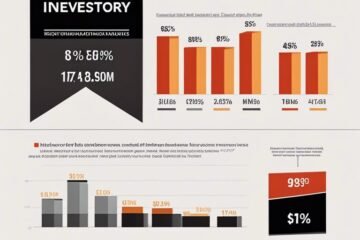Many exciting changes are on the horizon in the Charlotte housing market, and you may be wondering what the future holds for home prices, inventory, and sales. In this blog post, we will probe into the data and trends shaping the real estate landscape in Charlotte, offering you valuable insights to help you navigate the market with confidence. Let’s explore what the experts predict and how it may impact your home buying or selling decisions.
Key Takeaways:
- Increasing Demand: The Charlotte housing market is predicted to see increasing demand due to factors such as population growth, job opportunities, and low mortgage rates.
- Rising Prices: With the high demand and limited inventory of homes for sale in Charlotte, it is expected that housing prices will continue to rise in the coming months.
- Investment Opportunity: Investing in the Charlotte real estate market could prove to be lucrative as the city continues to attract new residents and businesses.
Current State of Charlotte Housing Market
Overview of the Market
Charlotte has been experiencing a dynamic real estate market in recent years, with a steady increase in home prices and sales. The city’s growing economy, diverse job market, and attractive quality of life have made it a desirable location for homebuyers. As a result, demand for housing has been high, leading to a competitive market for both buyers and sellers.
Recent Trends and Shifts
The Charlotte housing market has seen some notable trends and shifts in recent times. One of the key trends has been the rising popularity of urban living, with more people opting to live in the city center rather than the suburbs. This shift has led to an increase in demand for condos and townhomes in the heart of Charlotte, driving up prices in these areas.
Plus, the influx of young professionals and millennials into the city has also contributed to the demand for housing in Charlotte. As this demographic group seeks to establish roots and build careers in the city, they are driving the demand for affordable housing options and amenities that cater to their lifestyle preferences.
Economic Indicators Influencing the Market
While Zillow predicts Charlotte will be one of the hottest housing markets in 2024, several economic indicators play a crucial role in shaping the real estate landscape. Understanding these factors can help you make informed decisions in the Charlotte housing market.
Job Market and Unemployment Rates
Indicators such as job growth and unemployment rates can significantly impact the housing market in Charlotte. A robust job market with low unemployment rates usually leads to increased demand for housing, driving prices up. Conversely, high unemployment rates may result in reduced demand and stagnation in the real estate market. Keeping an eye on job market trends can give you valuable insights into the future trajectory of the Charlotte housing market.
Interest Rates and Inflation
On the other hand, interest rates and inflation also play a vital role in shaping the housing market. Fluctuations in interest rates can affect mortgage affordability for homebuyers. When interest rates are low, borrowing costs decrease, making homeownership more accessible. Conversely, rising interest rates can deter potential buyers and slow down the housing market activity. Additionally, inflation can erode the purchasing power of consumers, impacting their ability to buy real estate.
GDP Growth and Consumer Spending
Indicators like GDP growth and consumer spending can offer valuable insights into the overall economic health of Charlotte, thus influencing the housing market. Strong GDP growth indicates a thriving economy, which can lead to increased consumer confidence and higher spending levels. This, in turn, can drive demand for housing and boost property values. Monitoring GDP growth and consumer spending trends can help you anticipate shifts in the Charlotte housing market.
Economic indicators such as job market conditions, interest rates, inflation, GDP growth, and consumer spending all play a crucial role in shaping the Charlotte housing market. By staying informed about these factors, you can make well-informed decisions when buying or selling property in Charlotte. Keeping an eye on these economic indicators can help you navigate the dynamic real estate landscape and capitalize on opportunities in the market.
Demographic Trends Shaping the Market
Population Growth and Migration Patterns
Market analysts predict that Charlotte’s housing market will continue to see growth due to the city’s increasing population and steady influx of migrants from other states. Charlotte’s appeal as a vibrant and business-friendly city has attracted a diverse range of individuals and families looking for new opportunities and a high quality of life.
Age and Income Demographics
The age and income demographics of Charlotte’s population play a significant role in shaping the housing market. The city has a relatively young population with a growing number of professionals and families with increasing income levels. This trend is driving the demand for both affordable housing options and upscale properties in desirable neighborhoods.
The dynamic mix of age groups in Charlotte influences the types of properties in demand, from trendy urban condos for young professionals to spacious suburban homes for families. Understanding these demographic shifts can help you make informed decisions when buying or selling a property in the Charlotte area.
Lifestyle and Housing Preferences
Patterns in lifestyle and housing preferences are also influencing the Charlotte housing market. As more people prioritize work-life balance and seek amenities like green spaces, walkable neighborhoods, and access to entertainment options, the demand for homes in well-planned communities with these features is on the rise.
For those looking to invest in Charlotte real estate, identifying these lifestyle trends can guide you towards properties that are likely to see high demand and appreciation in the future. Keep these preferences in mind as you explore different neighborhoods and housing options in Charlotte to find a property that aligns with your lifestyle goals.
Housing Supply and Demand Imbalance
New Construction and Inventory Levels
After analyzing the current housing market in Charlotte, it is evident that there is a significant imbalance between the supply and demand. Housing inventory levels have been low due to a lack of new construction in recent years. This shortage of available homes has led to increased competition among buyers, ultimately driving up prices in the market.
Affordability and Pricing Pressures
Housing demand in Charlotte has been steadily increasing, fueled by a growing population and a strong economy. This rising demand, coupled with limited inventory, has put pressure on affordability and pricing in the housing market. As a result, many potential homebuyers are finding it increasingly challenging to find a home within their budget.
This imbalance between supply and demand has caused housing prices to soar in Charlotte, making it difficult for many prospective buyers to afford a home in the city. The lack of affordable housing options has become a significant concern for both first-time homebuyers and those looking to upgrade.
Rental Market Dynamics
Any analysis of the Charlotte housing market would be incomplete without considering the rental market dynamics. With home prices skyrocketing, many individuals are turning to renting as a more affordable housing option. This shift in demand has led to increased competition in the rental market, driving up rental prices across the city.
Pricing in the rental market is also being influenced by the same supply and demand imbalance seen in the housing market. Limited availability of rental units, coupled with high demand, has created a landlord’s market where tenants often find themselves paying higher rents than they might have anticipated.
Predictions for the Charlotte Housing Market
Short-Term Forecast (2023-2025)
Unlike the volatile nature of some real estate markets, Charlotte is poised for stability in the short term. With a growing economy and an influx of young professionals and families seeking affordable housing options, the demand for homes in Charlotte is expected to remain strong over the next few years. This sustained demand may result in a gradual increase in home prices, making it a favorable period for potential buyers to make their move before the market appreciates further.
Long-Term Outlook (2025-2030)
With Charlotte’s strategic position as a hub for major industries such as banking, energy, and technology, the long-term outlook for the housing market appears promising. Continued job growth and infrastructure development are likely to drive housing demand in the region. As the population continues to grow, the need for new housing construction may present opportunities for real estate investors to capitalize on the expanding market.
A burgeoning tech sector, coupled with Charlotte’s reputation as a desirable place to live, could attract more talent and further stimulate the housing market. As neighborhoods evolve and new communities emerge, you may find a diverse range of housing options to cater to varying preferences and lifestyles.
Potential Risks and Opportunities
Any investment in real estate comes with inherent risks, and Charlotte’s market is no exception. Economic downturns, unforeseen regulatory changes, or natural disasters can impact property values and market dynamics. It’s crucial to conduct thorough research and seek professional advice to navigate these uncertainties effectively.
Opportunities
Opportunities abound in the Charlotte housing market for those willing to take the plunge. Whether you are looking to buy your first home, expand your investment portfolio, or capitalize on emerging trends, staying informed and being proactive can help you make the most of the opportunities presented by Charlotte’s dynamic real estate landscape.
Impact on Homebuyers and Sellers
Now that the Charlotte housing market is predicted to become more competitive, it’s crucial for both homebuyers and sellers to adjust their strategies accordingly.
Strategies for Buyers in a Competitive Market
For homebuyers, navigating a competitive market requires a proactive approach. To increase your chances of securing a home, consider getting pre-approved for a mortgage, limiting contingencies in your offer, and being prepared to act quickly when you find the right property. Additionally, working with a seasoned real estate agent who knows the local market well can provide you with a competitive edge.
Tips for Sellers in a Shifting Market
For sellers in a shifting market, pricing your home strategically is key. Be prepared to adjust your asking price based on market feedback and work with your real estate agent to effectively market your property. Consider investing in small upgrades or staging to make your home more appealing to potential buyers. Remember that flexibility is crucial in a changing market, so be open to negotiating terms with buyers to close the deal successfully.
- Embrace flexibility in negotiations.
- Listen to market feedback and adjust your strategy accordingly.
Navigating the Rental Market
For those considering renting in Charlotte, the market dynamics are also likely to be affected by the overall housing market trends. Rental prices may fluctuate depending on the supply and demand in different neighborhoods. It’s imperative to stay informed about rental trends, work with a reputable real estate agent specializing in rentals, and be prepared to act swiftly when you find a rental property that meets your criteria.
A thorough understanding of the rental market, including average rental prices, neighborhood amenities, and lease terms, can help you make informed decisions when searching for a rental property in Charlotte. Whether you’re looking for a short-term lease or a long-term rental, being proactive and doing your research will increase your chances of finding the right place for you.
Final Words
With these considerations in mind, you can now better navigate and prepare for the housing market in Charlotte. By staying informed about trends and predictions, you can make more informed decisions about buying or selling a home in the area. Remember to consider factors like interest rates, inventory levels, and the overall economic landscape when planning your next real estate move.
Q: What factors are influencing the housing market predictions in Charlotte?
A: Various factors such as supply and demand, interest rates, economic growth, and job market trends are influencing the housing market predictions in Charlotte.
Q: Are housing prices expected to increase or decrease in Charlotte in the near future?
A: Housing prices in Charlotte are expected to continue increasing due to high demand, limited inventory, and the region’s strong economic growth.
Q: How is the rental market expected to fare in Charlotte?
A: The rental market in Charlotte is also predicted to remain competitive with increasing rental rates, especially in popular neighborhoods and areas close to downtown.
Q: Are there any new developments or projects that could impact the housing market in Charlotte?
A: Yes, there are several new developments and infrastructure projects scheduled in Charlotte, such as new residential communities, transportation improvements, and commercial developments, which could influence the housing market in the region.
Q: How should potential buyers or sellers navigate the current housing market predictions in Charlotte?
A: Potential buyers or sellers in Charlotte should stay informed about market trends, work with experienced real estate professionals, and be prepared to act quickly in a competitive market to make informed decisions regarding buying or selling properties.




